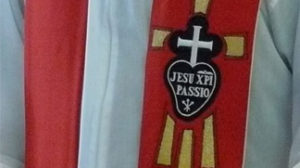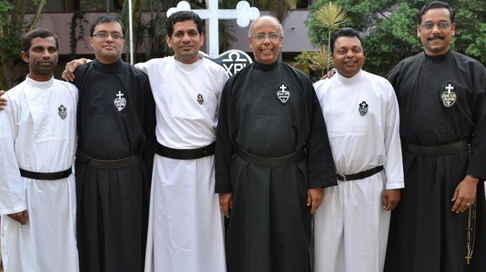Father Owen of the Cross, known before his religious profession as Thomas Michael Monaghan, was born in Chicago, April 6, 1910. His parents, at the time, lived in Nativity parish, where Father Owen was baptized. This parish is loved and revered by many priests and religious as the Alma Mater of their vocation. Father Owen throughout his life was a Chicagoan through and through. His boyhood days were spent farther south and it was in the Visitation parish school that he received his grammar school education from the Dominican Sisters of Sinsinawa, Wis. After the completion of the eighth grade, Father Owen entered our Preparatory Seminary in Normandy, Missouri, August 30, 1923. He was inspired to join the Passionists by the example of a boyhood playmate who came with him, but who failed to persevere. Mr. and Mrs. Monaghan are among the thousands who have come to our country from the old Catholic lands of Europe. Their spirit is one of earnestness, industry, religion. Life for them is something real and serious and enduring beyond the grave. They are both natives of County Cavan, Ireland; Mr. Monaghan having been born at Threecarvagh; Mrs. Monaghan, nee Catherine Clarke, at Tunnyfayle. Of Mr. Monaghan’s spirit of faith, Father Owen himself gave evidence when, as a student, he said of his father: “The dad is still running street-cars in Chicago and seeing a Cross at every street intersection.” Of his mother’s – it was discovered that she had fasted every week on Wednesdays, Fridays, and Saturdays all through the years of Owen’s student days, to beg for him the grace of perseverance in his vocation. There were eight children in the family, five girls and three boys. It was not long after Pearl Harbor that the neighbors saw three service stars shining in the front window of the Monaghan home.
Father Owen was professed August 1, 1928, and made his final profession three years later.
He was ordained in St. Ambrose Cathedral, Des Moines, Iowa, by Bishop Bergan, June 6, 1936. In the nine years of his priesthood, he served as teacher at our Preparatory Seminary, chaplain at Hines Memorial Hospital for veterans, and Vice-Rector of St. Gabriel’s Retreat in Des Moines, Iowa. Yet all the while Father Owen’s heart was set on becoming a missionary; and he most certainly would have become an eminently successful one had God so willed it. He was endowed with a fine mind, a strong constitution, deep feeling, sympathy for others, a burning zeal for souls, and an ability to speak of old things in a very new way. His work as a priest, however, was not to be the formal work of a missionary. His ministry, even as a missionary, summoned him to become a good soldier of Christ Jesus. This ministry was to be closely restricted by place, people, and time. He was to become a military chaplain; to labor for the salvation of the Armed Forces in the far-away islands of the southwest Pacific, and that for only a few months. He accordingly resigned as Vicar and became a chaplain in the United States Army. Father Owen sailed for the Southwest Pacific in December, 1942, one year after Pearl Harbor. He was one of our first chaplains to see active service on the battlefields. He was attached to the 162nd Infantry Regiment of the 41st Division which fought so heroically in the New Guinea campaign.
An article by John Graham Dowling in the “Chicago Sun,” August 11, 1943, gives us some idea of the physical hardships of a chaplain’s life in New Guinea: “They call themselves the New Guinea Circuit Riders, these front-line Padres of American fighting men in the Salamaua sector.
“Their duties in the service of God all them to cover hundreds of miles of dangerous coastline, to follow rugged mountain trails infested with ambushes to bring spiritual comfort to the wounded and dying up where the bullets whistle over your head. They go any place where there are American troops in this jungle-covered hot spot.
“You see them under fire on Roosevelt Ridge, burying the dead, you find them helping the wounded men back down the trail, lugging the casualties’ rifles on their shoulders. You find them washing their bruised and tired feet in the cool waters of a mountain stream, scrambling under red and muddy hills in a tropical downpour, while the Japanese shells smack all around.
“You find them making a two-hundred mile trip back to the rear to get things for the men. You find them working on the rough coast in small boats, under the eyes of the Japanese in the hills above Salamaua, You find them in airplanes, flying through the treacherous downdrafts of the mountains. Sunday’s Mass catches up with the troops on Wednesday, but it gets to them at least once a week. They certainly get around, these New Guinea Circuit Riders.
“You find Father Owen Monaghan of Chicago upon Roosevelt Ridge… It’s a tough circuit, but the look of appreciation and regard in the eyes of the soldiers makes it worthwhile.”
Besides the difficulties of place there were constant, ever-present dangers of death. The first was carrying out the wounded from the battlefield and burying the dead under direct enemy fire from rifle, machine gun, grenade and mortar. During the fight for Roosevelt Ridge, Father Owen three times crossed the area on which the Japanese were concentrating their fire, to rescue the wounded. It was for such extraordinary and conspicuous bravery that he was decorated with the Silver Star by Major General H. H. Fuller, the Commanding Officer of the Division. Other dangers were from above. Father Owen was aboard an ammunition ship off the New Guinea Coast, when it was hit by Japanese bombers. George Weller of the “Chicago Daily News” quoted Father Owen: “When the ship caught fire, our crew of sea-going G.I.s managed to get the hatches battened down, stifling some of the fire. But some shells began to go off. I could feel the deck belly upward and lift with each explosion and I expected to take a ride to heaven any minute.” Father Owen was able to get ashore, however, and he conducted burial services for the Americans lost when the ship was struck. It was on this occasion that Father Owen lost all his belongings, even his chaplain’s kit. Another danger of death was from illness. Father Owen suffered repeatedly from attacks of tropical malaria. The first attack of this dread disease struck him while he was in Australia in December, 1943. Perhaps the severest attack of malaria literally prostrated him while he was aboard an Army Transport in convoy en route to a new landing. His illness became so acutely severe that he was transferred to a navy craft while the convoy steamed on. He was brought back to the Base and confined to the hospital. As he himself concludes: “So I missed the landing.”
Yet in spite of everything Father Owen remained on duty. Robert Cromie writes in the “Chicago Tribune,” on September 12, 1943: “And I must not forget to mention Lt. Owen Monaghan of Chicago, a chaplain, who is doing such a really tremendous job at Tambu Bay. I’ll bet I met ‘Chappie,’ as the boys call him, at least thirty times.
“Climb a ridge – there’s Father Monaghan.
“Walk miles down the beach – there’s Father Monaghan.
“Visit an area just shelled or just bombed – there’s Father Monaghan.
“In fact, I am not at all sure there are not two and maybe three Father Monaghans. One man could not be in so many places at once.”
Relief from this hard and dangerous mission came to Father Owen when he was detached from active service and sent to Australia for a period of rest. He liked Australia and wrote gratefully of the kindness of its people, priests and bishops. Naturally he called often, while in Sidney, at our Retreat there, for a visit with his own religious brethren whose charity he appreciated deeply and of which he wrote in his letters home. There was a personal gratification for Father Owen in these visits to our Retreat in Sydney, for he had met the Rector, eight years previously, back home in the United States. After this period of rest it was a return to duty and on to the victorious close of the New Guinea campaign. Then came good news. They were going on to the Philippines and nearer to the final victory. In a sense though, it was sad news, for he was not to go with his own regiment. He had been transferred from the 162nd Infantry Regiment of the 41st Division to the 126th Infantry Regiment of the 32nd Division. The letter telling us of this is dated February 4, 1945. The next news we had concerning Father Owen was the fateful telephone call during Rosary the evening of April 23, when his sister read to us the telegram from the War Department. The details of his death are best given in a communication from the Divisional Chaplain to the Chief of Chaplain in Washington :
“Dear Chaplain:
“One of the most difficult assignments I have had as Division Chaplain is writing to inform you of the circumstances and death of Captain Owen T. Monaghan, Roman Catholic Chaplain of the 126th Infantry Regiment. He was killed in action … Luzon, P.I.
“He came to this division about ten weeks ago, following a tour of duty with the 41st Division. He had been through several campaigns with them. While there he was awarded the Silver Star. Even though he had been with us only a short time, he endeared himself to the officers and men of his regiment, and did an outstanding piece of work there. He was one of the finest chaplains I have ever met.
“Chaplain Staudt, C.PP.S., of the 107th Medical Battalion supplied us with the following account of his death: He had not been feeling well for two days and had spent Friday at one of the Collecting Companies, An officer there suggested that he be evacuated, but Chaplain
Monaghan insisted on staying. Early Saturday morning he left without telling anyone and joined a ration train going up to the forward troops to see if he could offer Mass for the men there. When he reached the front, one of the Infantry Companies was making an attack, so he went over to the Command Post from which place the battle could be observed. It was while he was here that the Japanese spotted the group at the Command Post and shelled them with artillery. One shell landed near Chaplain Monaghan and he was killed instantly.
“He was buried on Tuesday, April 10 … at 3 o’clock in the afternoon.
“The Mass was offered by the assistant Division Chaplain, Edward Connolly. The absolution was given by His Excellency, the Most Reverend Marion A. Madriaga, the local Ordinary. Later His Excellency blessed the grave…
“Chaplain Monaghan was a credit to the Corps. He represented the highest ideals of his calling. Blessed be his memory, peace to his soul.
Sincerely,
(signed) Sigvard M. Tweetan, Div. Chaplain (Major).”
The Assistant Divisional Chaplain referred to in this letter is Reverend Father Callistus, C.P., whose home is in Scranton, Pa. Father Provincial received a letter from Father Callistus telling more details about Father Owen’s death:
Dear Father:
“The purpose of this letter is to inform Your Paternity that on the death of April, Father Owen Monaghan was killed instantly by a Japanese artillery shell. This happened along the Ville Verde Trail in Luzon, P.I. At the time of his death, Owen was up at the front lines with his men. He was always with his men. Even now his body rests where he would want it, alongside his men. As he expressed it one day, he always wanted to be where Christ would be if He were here. . .
“The following priests were present at the funeral: Father William Staudt, C.PP.S., 32nd
Division; Father Rudolph A. Marzion, O.M.C., of Milwaukee, 32nd Division; John T. Lyons of the Archdiocese of Louisville; Peter C. Cavanaugh, O.F.M., of New York; John L. Zielinski of the Archdiocese of Chicago; Anselm M. Keefe of St. Norbert’s Abby, West DePere, Wisconsin; William J. Leonard, S.J., and Frank J. Desmond of Boston; Eugene J. Reilly and B. S. Moscinski of Newark; Jerome J. Klingsporn, C.R., of Chicago; Cletus E. Synder of Buffalo; John T. Cullen of Milwaukee; John F. Ryan, O.P. of Providence, R.I. ; Edward A. Whelly of Albany; and Jan Sison and A. C. Salindon Rhra, local diocesan clergy. With Father William J. Leonard were four Jesuit Scholastics from one of the local houses.
“The funeral was held on Tuesday, April 10, at the United States Armed Forces Cemetery at Santa Barbara, Luzon, P.I., at three o’clock in the afternoon. I was the celebrant of the Mass.
“In death we tried to do for him all that his own brethren would have done under the circumstances… I placed a stole around his neck as the Ritual directs. Many Masses have been offered for the repose of his soul by his fellow priests here in the Philippines. We will long remember him and many a GI will implore heaven to let perpetual light shine upon his soul and the souls of all their departed buddies. Asking God to bless you always, I remain,
Sincerely yours in Christ, (signed)
Father Edward Connolly, Callistus, C.P.”
Other letters were received by the Monaghan family. We would like to quote excerpts from some of them. The first is from Lt. T. J. Gildea of Camp Hood, Texas:
“Dear Mr. Monaghan:
“I want to express my heartfelt sympathy on the loss of your wonderful son and priest whom I considered a dear friend. I was in the 162nd Infantry and was with Father Owen in Salamaua and in Australia.
“Everyone, Catholics and non-Catholics alike, had deep admiration for your son, Father Owen, as a priest, as a Chaplain, and as a Catholic gentleman. Many were the times that he would come up to our fox-holes to distribute Holy Communion to us, thus strengthening us a great deal. I always found great pleasure in serving Mass for Father Owen, even when the Japanese were nearby. . .
“He is in heaven now, looking down on you, and it would grieve him to know that you are grieving. My kindest wishes to you and your dear ones.
Sincerely,
Tom Gildea.”
The following is from a soldier to friends and relatives:
“March 17, 1945: Well here it is St. Patrick’s day. It almost went by without my knowing about it. But the priest came up today and heard confessions and then said Mass and gave Communion. Before Mass he said: ‘For the benefit of the Irish present, today is March 17, St. Patrick’s day. Well it just seemed to hit me in the face. I never knew about it till then. It really wasn’t my fault, though, for one day is just like any other day here, and trying to keep track of them is not easy unless you have a calendar. The priest’s name is Father Monaghan, and he is really a peach. I was talking to one of the old men in the outfit and he was telling me how this priest goes up in front in all the battles, always going to any spot where any man had fallen. This man was asking me why our priest said prayers up in front that way. I tried to explain as well as I could and I think he has a good idea why now. . .”
The following excerpt is from an undated letter: “Things have been pretty rough here. This morning our priest went to say Mass a little farther up. Well, he is now going to spend the rest of his time in heaven. He was really a peach and the fellows all liked him. He was a priest whom any man, no matter what religion he was, could go up to and talk to. He said Mass here, Saturday. I’ll never forget him as long as I live. There are quite a few here who are going to be thinking of him every time a Japanese pops up in sight. It’s hard to see your buddies killed or even wounded, but when the spirit of Christ, the servant: who continually brings peace to your soul, who cheers you up and who hears your confession, and says Mass and gives Communion, so that we may have Christ with us and also have peace of soul, mind and body, when a man of his standards, ideals and caliber gets killed, well – it’s not easy to take. I believe he went right to heaven, and also that someone’s going to pay for it and pay dearly.. . I have quite a few of your letters here, but I think you will understand how I feel; at least I hope and pray that you do. I could try to answer them, but I don’t believe I could write a letter with any sense at all to it.”
The next letter was written in longhand by one who we believe is the grandson of the late President Theodore Roosevelt; Mr. Roosevelt seems to have been rather close to Father Owen since the Monaghan family has pictures of Mr. Roosevelt with Father Owen.
My Dear Mr. Monaghan:
“It is only yesterday that I was fortunate enough to get your address, and so be able to write you about the death of your son, Father Monaghan, in the Philippines.
“It was my great privilege to serve for a considerable time with him. He was a gallant soldier of the Cross and of the United States army. His courage and humor were unfailing in the most trying circumstances, and he was beloved by the officers and men.
My sincere condolences to you.
Sincerely,
Archibald B. Roosevelt.”
The last letter is given in its entirety:
Dear Mr. Monaghan:
“In the death of your son, Captain Owen T. Monaghan, I have lost a gallant comrade-in-arms and send you my deepest sympathy.
“His service under me in the Pacific was characterized by his complete devotion to our country, and by giving his life in our crusade for liberty he is enshrined in the nation’s glory.
Very faithfully Douglas MacArthur.”
All this praise accorded him in life and after death pleases and consoles us; but it is really no surprise. Father Owen’s real life, that of the soul, was not formed on the battlefield; it was revealed there. All life of its nature is interior, and so is the spiritual life of the soul. Father Owen’s spiritual life was pre-eminently interior. As we remember him we see how this must have been: for the grace of God is given to us, not in violation of our nature, but in accordance with it. Father Owen is remembered in his boyhood and student days as shy, retiring, quiet. He was indeed always one of the class in everything just exactly like his companions. He worried over his examinations, just as they did. He joined in the merriment of the common recreation. Together with the others, he chanted the Office in choir and made his prayer. Yet in all of this an observer would have noticed how successfully Father Owen always managed to take the last place; how contented Father Owen was to be silent while others spoke.
His letters from the war zone are brief and even sketchy. There were many things Father Owen didn’t write about. In what he did write, though, we remark the many times he treats of his heroic deeds so lightly; often by way of jest. Innocently he left wide open spaces between the lines. Those who knew would get the meaning. Now and then, to vary the process, he packs and crams into a few words the story of a hard week’s tramp through the jungle.
The interior life of this heroic priest was born of simple, living, active faith in God’s Sovereignty. God gave Father Owen his life; God supported it; God guided it; God protected it; God ended it. God, indeed, was “all in all” (I Cor. XV:28) to Father Owen.
Most of us are ignorant of the kind and the degree of Father Owen’s prayer, but this one thing we are all sure of: the quality of his prayer which he strove for: “When thou shalt pray, enter into thy chamber, and having shut the door, pray to thy Father in secret, and thy Father who teeth in secret will repay thee.” (St. Matthew, VI:6)
Many were the acts of virtue Father Owen practiced, especially of charity. Yet neither he nor anyone else spoke of them, for the simple reason that even he refused to let his left hand know what his right hand had accomplished.
When he had done his duty, he passed over it ever so lightly, as though it were a mere trifle; for he remembered the words of our Savior: “When you shall have done all these things that are commanded you, say: We are unprofitable servants; we have done that which we ought to do.” (St. Luke, XVII:10)
The school wherein Father Owen was educated in the spiritual life is the school of Jesus Crucified. In the second vespers for our Holy Founder’s feast day we sing: “Didicisti sapientiam in vulneribus Christi” – Thou didst learn wisdom in the wounds of Christ. When Father Owen’s class entered the novitiate Father Denis, the Master of Novices, permitted them to choose their religious name and title. Father Owen would be known by the title, “of the Cross.”
Let us see briefly some indications of this interior life of his in Father Owen’s exterior activities. First, his practice of the virtue of Simplicity. He was a priest for nine years, and at home and abroad had mingled with the general public. Everyone notices a priest: most learned men will defer to a priest: the most saintly will kneel for his blessing. Every priest has his following. Father Owen had his. He had often heard at home and abroad words of praise, even of flattery, yet it did not spoil the freshness of his innocent simplicity. His head was not turned : he assumed no pose: he put on no airs. In Australia, when the Commanding General of the Division publicly pinned the Silver Star on his breast for conspicuous bravery, and the account of it published in the newspapers of native Chicago, his only comment was: “Can you imagine that – when every Director had me scared stiff.”
Then, his Humility. In doing hardest work even in defiance death, he would have blushed in embarrassment, if he had been praised as heroic. As he himself wrote to one of the brethren: “One should take the newspapers too seriously. They always add that certain something to make things appear exceptional and exciting.” In his last letter to his mother, he described his last St. Patrick’s day upon earth. He went up into the mountains of North Luzon to say Mass for some of soldiers. He was particularly thrilled to write that he had given a poor Mexican boy his First Holy Communion. It was an arduous day, he did not return until evening. It was a dangerous mission, for at every fold in the hills he could have expected an enemy ambush. He ended the account thus: “St. Patrick had a busy day.”
Finally, his Detachment. Father Owen didn’t become a chaplain for the thrill of it. No doubt his experience with the veterans of the last war at Hines Hospital, Hines, Ill., determined him to volunteer. It was not a pleasant nor an easy decision for him to make, if only for this one reason : Father Owen’s only human attachment, one which he sanctified, was his deep love for his family. With his two brothers in the service he realized that his parents would suffer a two-fold anxiety. His going would be for them the greatest anxiety of all. Yet he went freely and gladly. When he sent in his father’s name as next of kin, he changed his father’s address to that of a married sister living in the neighborhood. He would be sure to set his mind at rest on this score: never would his mother be the first one to receive a telegram from the War Department. And God’s providence directed that Father Owen’s plans should be carried out to the last detail. One of his last admonitions to his sisters was this: “Don’t believe everything you hear, but be prepared for anything.” The last sound of his voice his dear ones were to hear came over the telephone one day at midnight. He was calling, as they were to find out later, from the West Coast just before the troop ship weighed anchor. The last words spoken to his youngest sister were these: “Take care of mother and dad.”
While we grieve over his death, let us remember that after all it mattered little to Father Owen where he died. He would be as close to God on the roads leading to the battlefields as in the corridors of our Retreats at home. “For the earth is the Lord’s and the fulness thereof.” (Ps. XXIII :1) Likewise it mattered little to Father Owen when he died, as a young priest only one day past his thirty-fifth birthday, or as a venerable jubilarian telling polite listeners, forty years hence, some of his thrilling experiences in the old days. God is indifferent to Time. “One day with the Lord is as a thousand years and a thousand years as one day.” (2 St. Peter III:8)
The guns are silent in the hills of Luzon. And peace is on the earth. We rejoice because of the rest from toil that peace has brought us. We rejoice because of the light that peace has shed upon the world. Father Owen’s peace is inviolable. His joy no man shall take f rom him, because his rest from toil is eternal. For him the light of peace shall never be even dimmed: it is light perpetual.
Every day over his resting place they will unfurl the bright emblem of his native land, our
flag we call Old Glory. Every day and every night there will remain unfurled another bright
emblem, the Ancient Glory of the Cross. Father Owen of the Cross would want us to cherish
words he had often chanted as a student, and recited as a priest: “But it behooves us to glory in the Cross of our Lord Jesus Christ: in Whom is our salvation, our life, our resurrection; through Whom we have been saved and freed.” (Gal. VI:14)

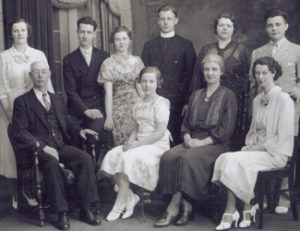
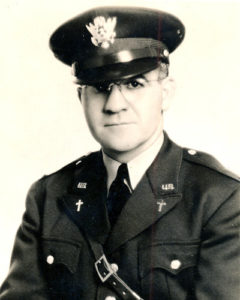
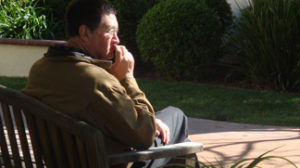 Our four Passionist retreat centers are halfway through an exciting 2014-2015 season. We welcome men, women and young people throughout the year to a variety of retreat experiences. Click on this year’s themes to read more about them:
Our four Passionist retreat centers are halfway through an exciting 2014-2015 season. We welcome men, women and young people throughout the year to a variety of retreat experiences. Click on this year’s themes to read more about them: